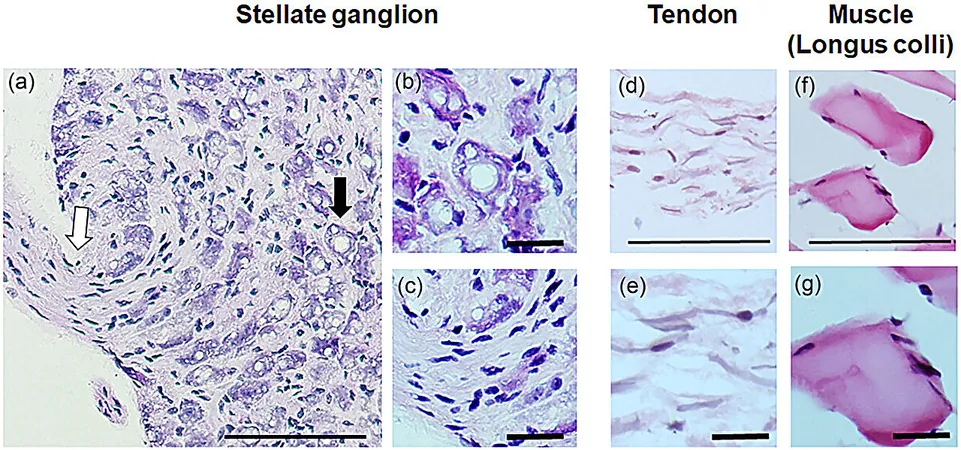
New Breakthrough in Parkinson's Research: Heart Health at Risk?
2025-04-03
Author: Rajesh
New Breakthrough in Parkinson's Research: Heart Health at Risk?
Recent groundbreaking research from the University of Surrey sheds light on a lesser-known impact of Parkinson's disease: its potential detriment to heart health. This study, spearheaded by scientists from the School of Veterinary Medicine, reveals that targeting a key protein outside of the brain might provide new avenues for managing heart-related issues associated with Parkinson's.
Published in the scientific journal Experimental Physiology, the study investigates the accumulation of the alpha-synuclein protein, notorious for its role in neurodegeneration, within the heart's nerve cluster known as the stellate ganglia. This cluster plays a critical role in the autonomic nervous system, which regulates vital functions such as heart rate and rhythm.
In examining mouse models engineered to produce a mutant form of alpha-synuclein, researchers discovered that a striking 27% of neurons within the stellate ganglia were afflicted by aggregated alpha-synuclein. This alarming finding indicates that Parkinson's disease could intricately disrupt cardiac function, alongside its well-documented effects on movement and cognition.
Professor Kamalan Jeevaratnam, the study's lead author and Head of Surrey's School of Veterinary Medicine, highlighted the implications of these findings: “Our study confirms the long-held suspicion of a connection between Parkinson's disease and cardiac autonomic dysfunction. It offers a new perspective on how this disease affects the nervous system beyond the confines of the brain.”
The researchers employed a meticulous dissection technique to extract the stellate ganglia while maintaining tissue integrity. By slicing the nerve clusters thinly and staining them with fluorescent markers, they mapped the spread and accumulation of the toxic protein within neurons, paving the way for future research.
Co-author Bonn Lee, a postgraduate student at the university, expressed optimism about the implications of their findings. “Understanding how Parkinson's affects the heart opens up new possibilities for treatment. If we can curb or halt the accumulation of alpha-synuclein in the nervous system outside the brain, we might mitigate some of the lesser-known but serious effects of this debilitating disease.”
The urgency of this research is underscored by the fact that while most Parkinson's treatments focus on neurological symptoms, very few address the cardiovascular complications that accompany it. The researchers are keen to partner with industrial stakeholders to explore how targeted therapies may alleviate symptoms and enhance the quality of life for those grappling with Parkinson's.
As scientists delve deeper into this uncharted territory, the hope remains that innovative treatments leveraging these findings could soon revolutionize care for individuals with Parkinson's disease, addressing not only their neurological challenges but also safeguarding their heart health.



 Brasil (PT)
Brasil (PT)
 Canada (EN)
Canada (EN)
 Chile (ES)
Chile (ES)
 Česko (CS)
Česko (CS)
 대한민국 (KO)
대한민국 (KO)
 España (ES)
España (ES)
 France (FR)
France (FR)
 Hong Kong (EN)
Hong Kong (EN)
 Italia (IT)
Italia (IT)
 日本 (JA)
日本 (JA)
 Magyarország (HU)
Magyarország (HU)
 Norge (NO)
Norge (NO)
 Polska (PL)
Polska (PL)
 Schweiz (DE)
Schweiz (DE)
 Singapore (EN)
Singapore (EN)
 Sverige (SV)
Sverige (SV)
 Suomi (FI)
Suomi (FI)
 Türkiye (TR)
Türkiye (TR)
 الإمارات العربية المتحدة (AR)
الإمارات العربية المتحدة (AR)